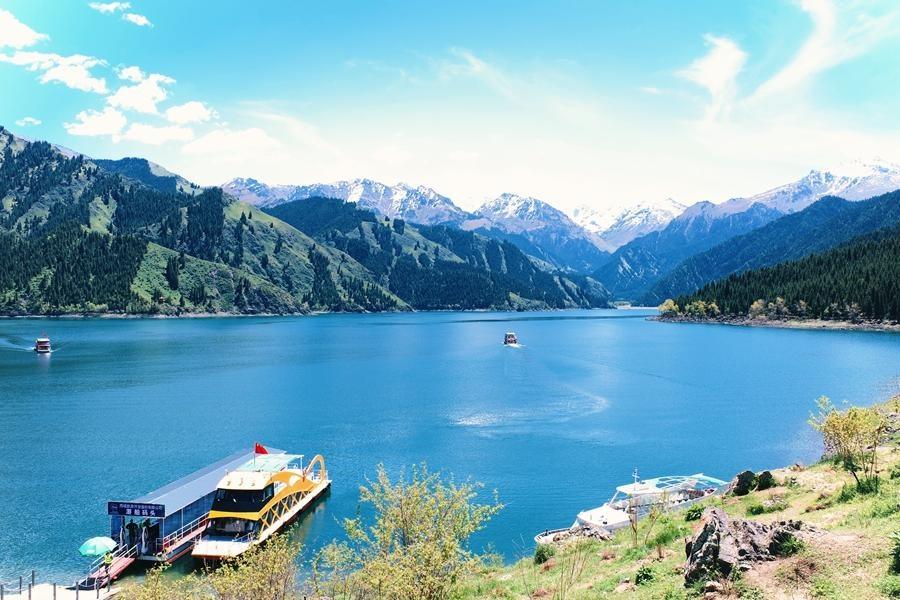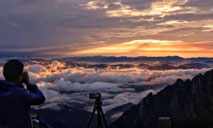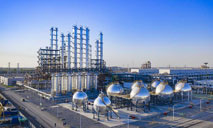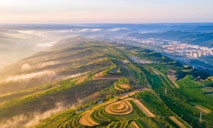Interview: Ex-U.S. ambassador recalls historic 1971 trip to China, urges today's cooperation
WASHINGTON, July 9 (Xinhua) -- "Flying by the second-highest mountain in the world, K2, just as the dawn was coming up on the snow, we were in the middle of this dramatic, secret trip," recalled a former U.S. ambassador to China in a recent interview with Xinhua. "It's a memory I'll never forget."
Winston Lord, U.S. ambassador to China from 1985 to 1989, has been a key figure for decades in restoring and developing U.S.-China relations. At the time when bilateral ties are at a low point, it may help to revisit how this most consequential relationship in the world got started.
Fifty years ago on July 9, Lord and then U.S. National Security Advisor Henry Kissinger sneaked onto a flight from Islamabad to Beijing.
As per a well-orchestrated plan, Kissinger pleaded illness the previous night, and then Pakistani President Yahya Khan invited him to stay in a hill station for days to recuperate. Kissinger instead secretly headed for China.
Washington and Beijing at that time had incentives for a rapprochement after two decades of hostility and isolation, said Lord, then a top aide to Kissinger, and both sides had been planning for such a visit through public signals and private messages since 1969.
"Since our two countries had been in confrontation for 22 years," he said, "it took courage by the leaders on both sides to move ahead with this dramatic move."
Lord felt excited about the trip back in 1971, not only for its dramatic arrangement and the consequent geopolitical implication, but also for a personal reason. "My wife was born in Shanghai and came to the United States at the age of eight, and so I was going back to the land of her birth," he told Xinhua.
"Technically," because of the trip, Lord has become the first U.S. official to enter China since 1949. "As we enter the Chinese airspace, I was in the front of the plane," Lord recalled. "I've always claimed to be the first American official into China in 22 years, and Dr. Kissinger has admitted this in his book."
During the two-day visit, Kissinger and then Chinese Premier Zhou Enlai held tremendous talks, and they defended each countries' positions, Lord said.
"There was a very interesting geopolitical, historical, and philosophic give and take as well as ranging over various issues that would be on president's agenda," he added.
"Each side met its basic objectives," he continued. "It was a classic as the Chinese liked to say win-win situation."
The visit paved the way for then U.S. President Richard Nixon's historic trip to China seven months later, which Lord described as one of the most important international developments in the past half a century.
Since the trip, the international landscape has seen profound changes. "Then and now, you have to understand the other's basic needs, red lines, true national interests, and where they really have a great difficulty in moving on their position," said Lord, also assistant secretary of state for East Asian and Pacific Affairs under former U.S. President Bill Clinton.
"Distinguish those issues from where some progress can be made and distinguish those in turn from with real common interests," he added.
During the interview, Lord said the two countries could cooperate on climate change, the COVID-19 pandemic, or nuclear nonproliferation to stabilize the relationship at a time of difficulty and tensions.
"Those principles remain valid after 50 years, namely put yourself in the other person's shoes, what do they need, and how can you reconcile that with what you need," he said.
Photos
Related Stories
- 50 years of China-U.S. relations benefitted both peoples: Chinese vice president
- Commentary: Why Kissinger's secret China visit still matters 50 years later
- China urges U.S. to stop obstructing China's implementation of 'One Country, Two Systems'
- Trade could provide opportunity for China, U.S. to rebuild trust: media
Copyright © 2021 People's Daily Online. All Rights Reserved.










